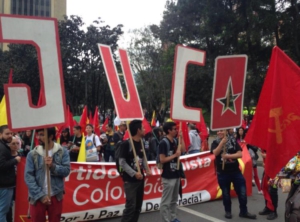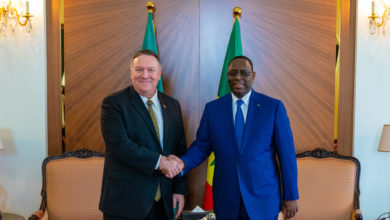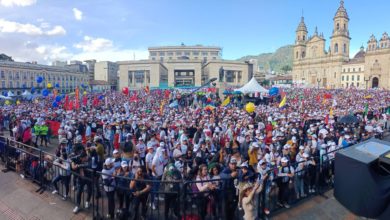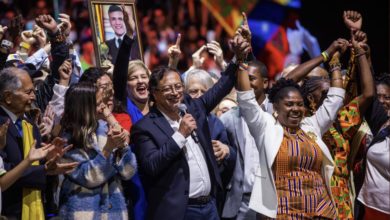Major national protests took place across Colombia January 21 within the context of the national strike movement that began on November 21. There are 104 demands made to the Colombian government by this committee composed of trade unions, social and student organizations. The main points are: an end to the assassination of community leaders, the implementation of the 2016 peace agreement, the fulfillment of the agreements made with the UNEES (National University Student Union) and the CRIC indigenous organization (Regional Indigenious Council of the Cauca), and the abolition of the notoriously brutal ESMAD riot police.

“The government does not recognize the demands of its citizens,” says Juan Castaño, a student leader of the universities of the Valle del Cauca told Liberation. “Today the people go to the streets to voice their discontent with a process of revictimization of those most affected by the armed conflict, as well as the lack of employment, health care and the divestment of public universities.”
For example, a town called Pogue in the municipality of Bojaya was recently seized by a paramilitary group named El Clan de Golfo. It was reported that on December 31, 300 armed men blocked the community from moving. After four days of the community asking for the government to intervene, military officials arrived and outrageously claimed to not find any sign of paramilitary activity. Furthermore, government officials began questioning the community leaders that first denounced the paramilitary presence.
On the international front, far-right Colombian President Ivan Duque has continued to be completely servile to the United States. Earlier this week, Duque hosted a meeting between U.S. Secretary of State Mike Pompeo and failed Venezuelan coup leader Juan Guaidó (who was infamously photographed with known leaders of the Colombian paramilitary group Los Rastrojos).
One of the popular chants heard today and throughout the past mobilizations is “this isn’t a government, it’s the paramilitaries in power.” Everyday this chant rings more and more true, but the national strike movement is determined to keep up its fight for a Colombia where the people have the power.



